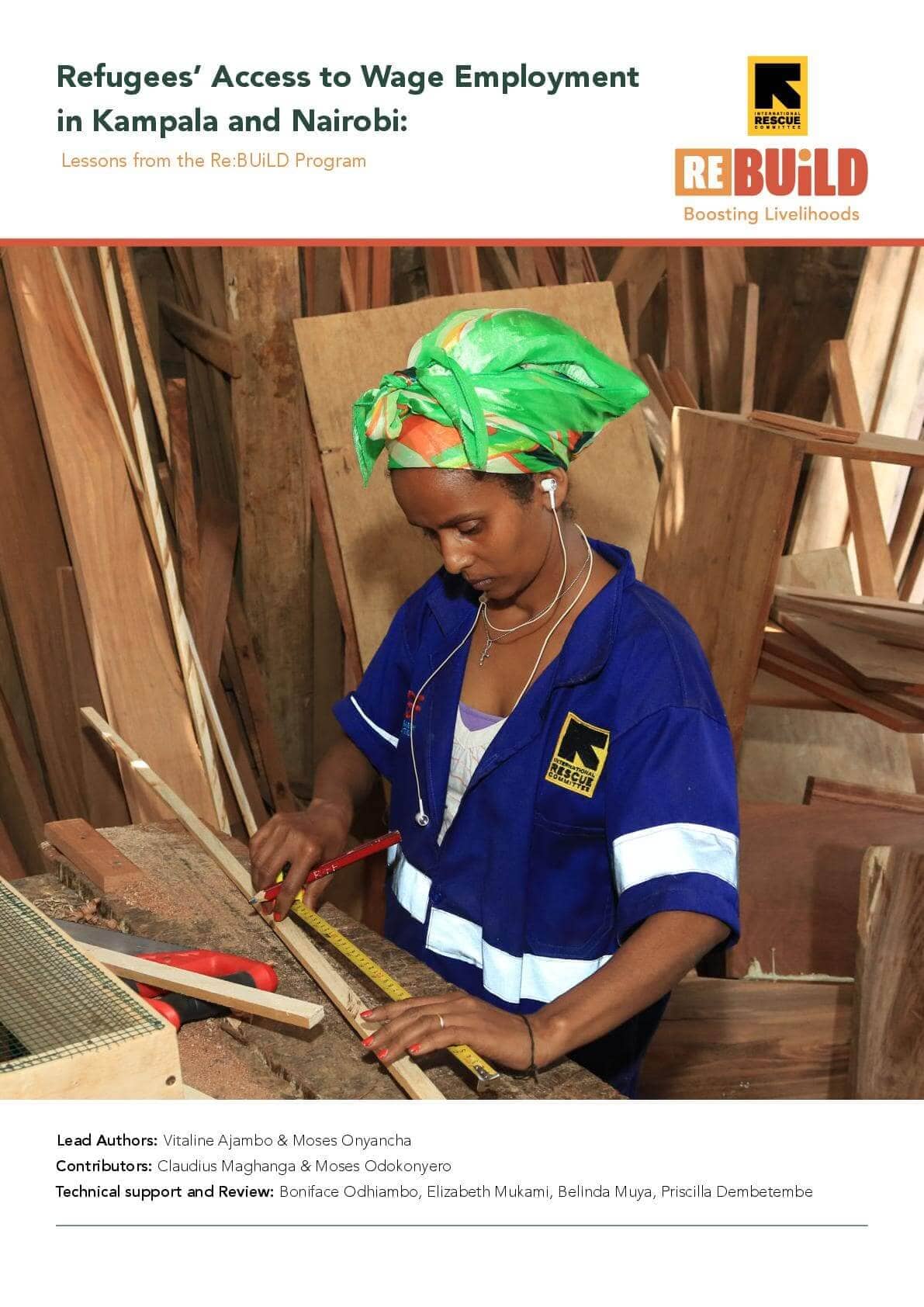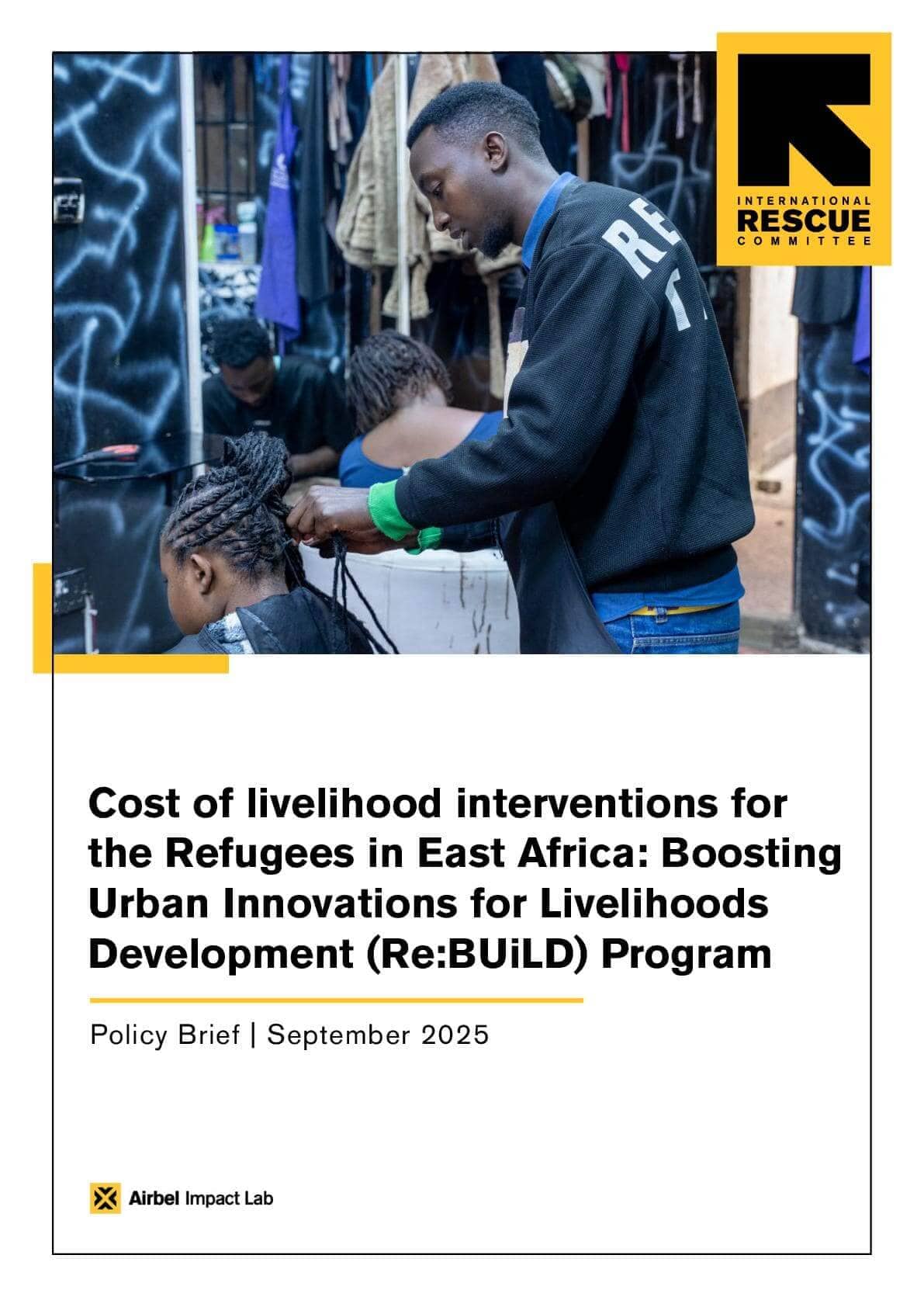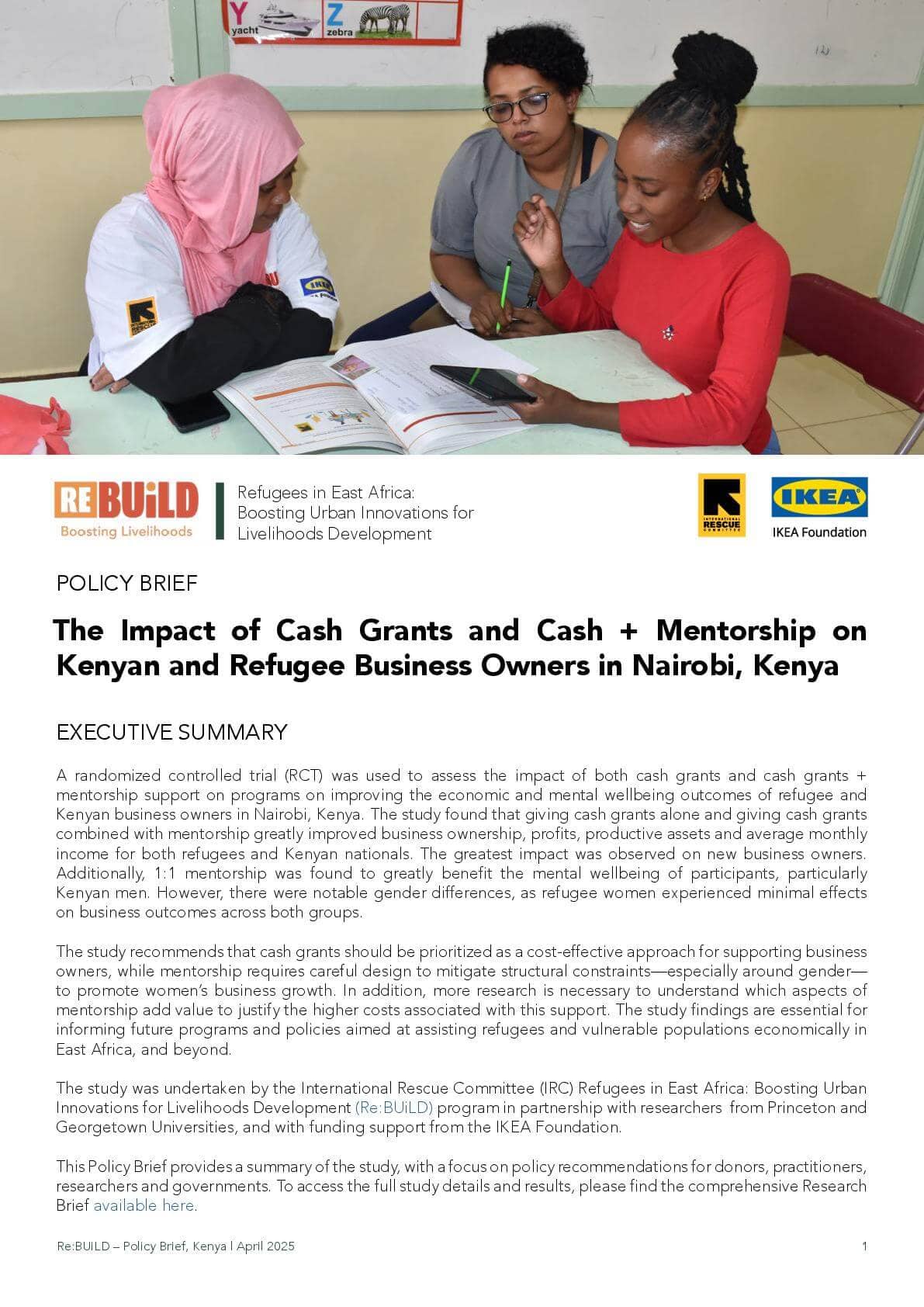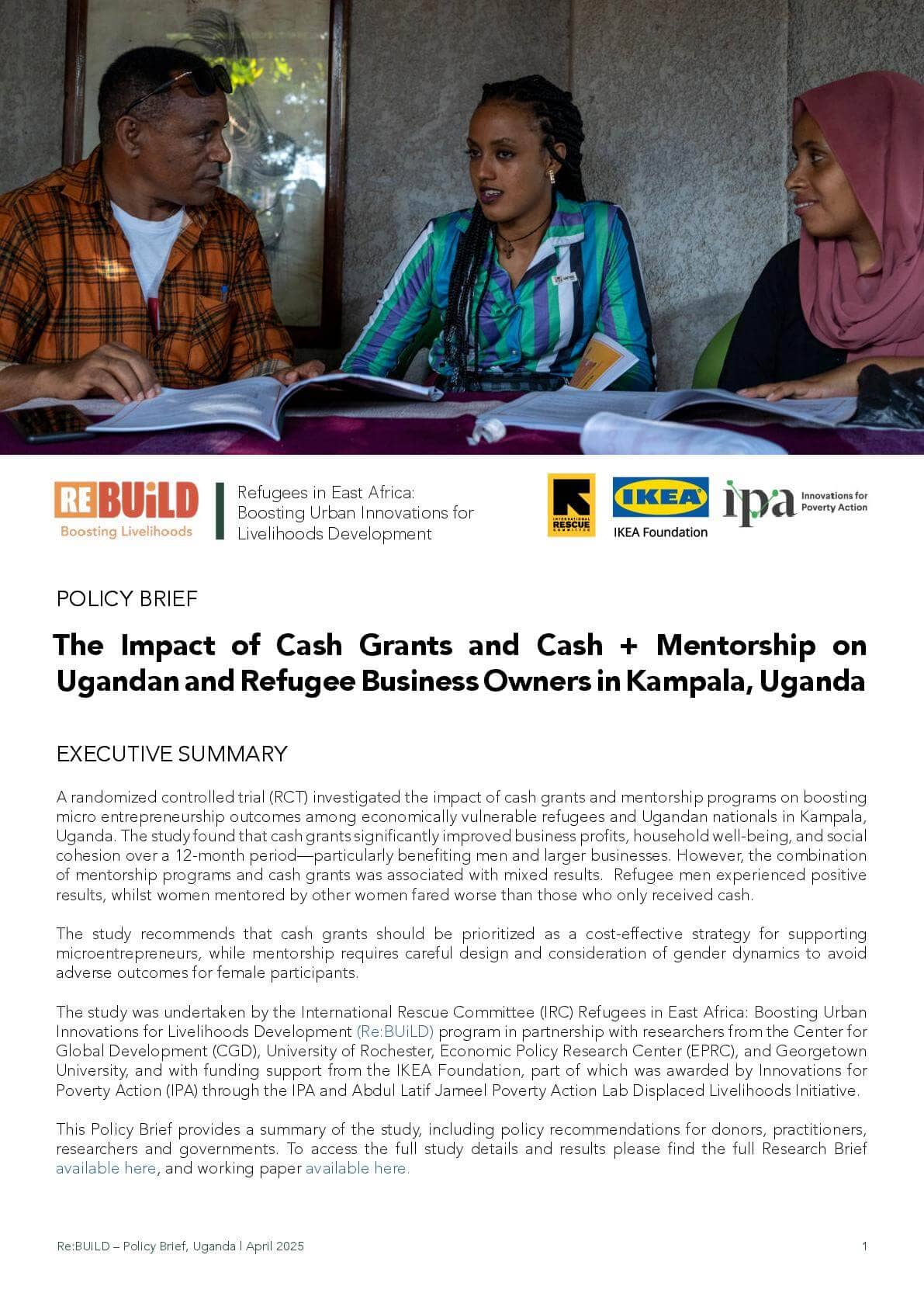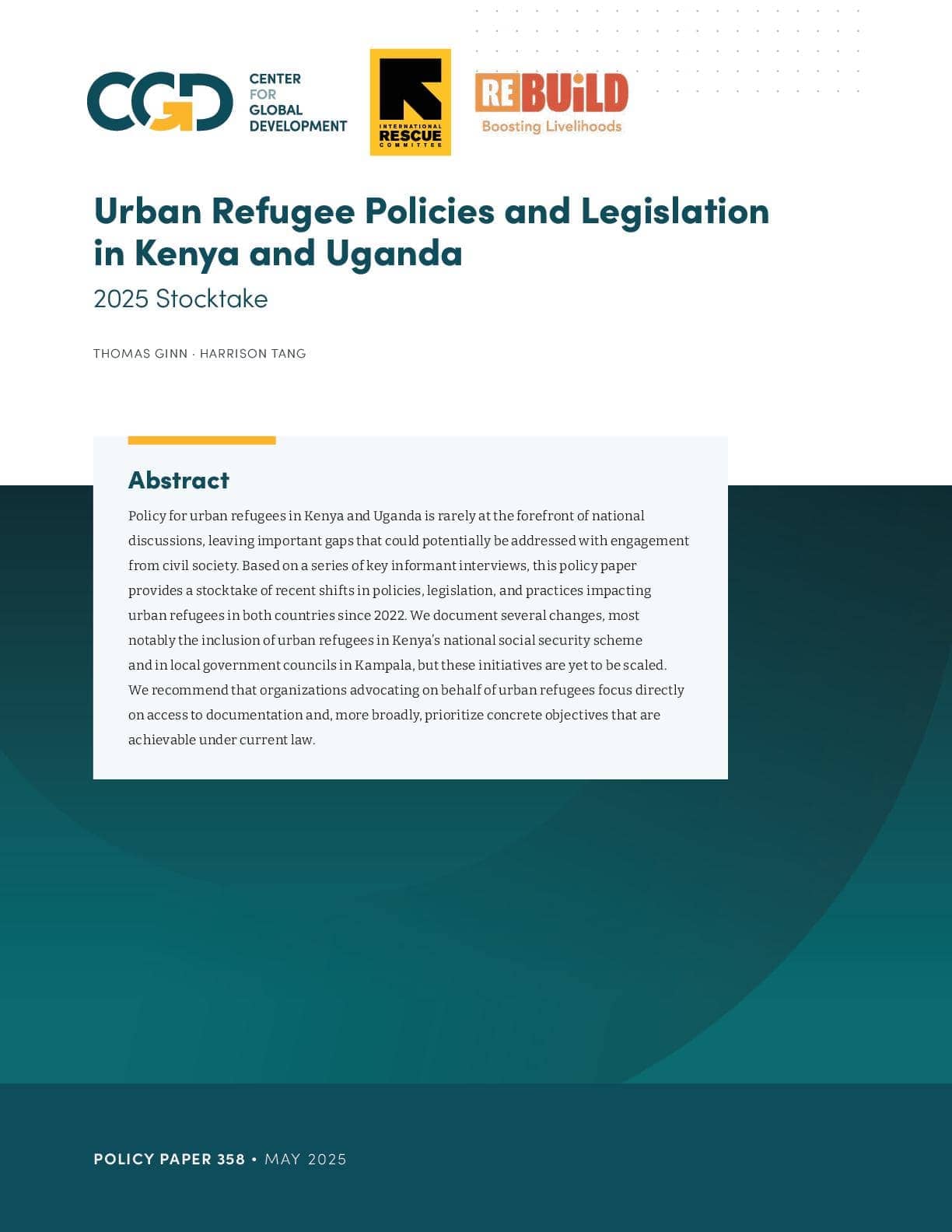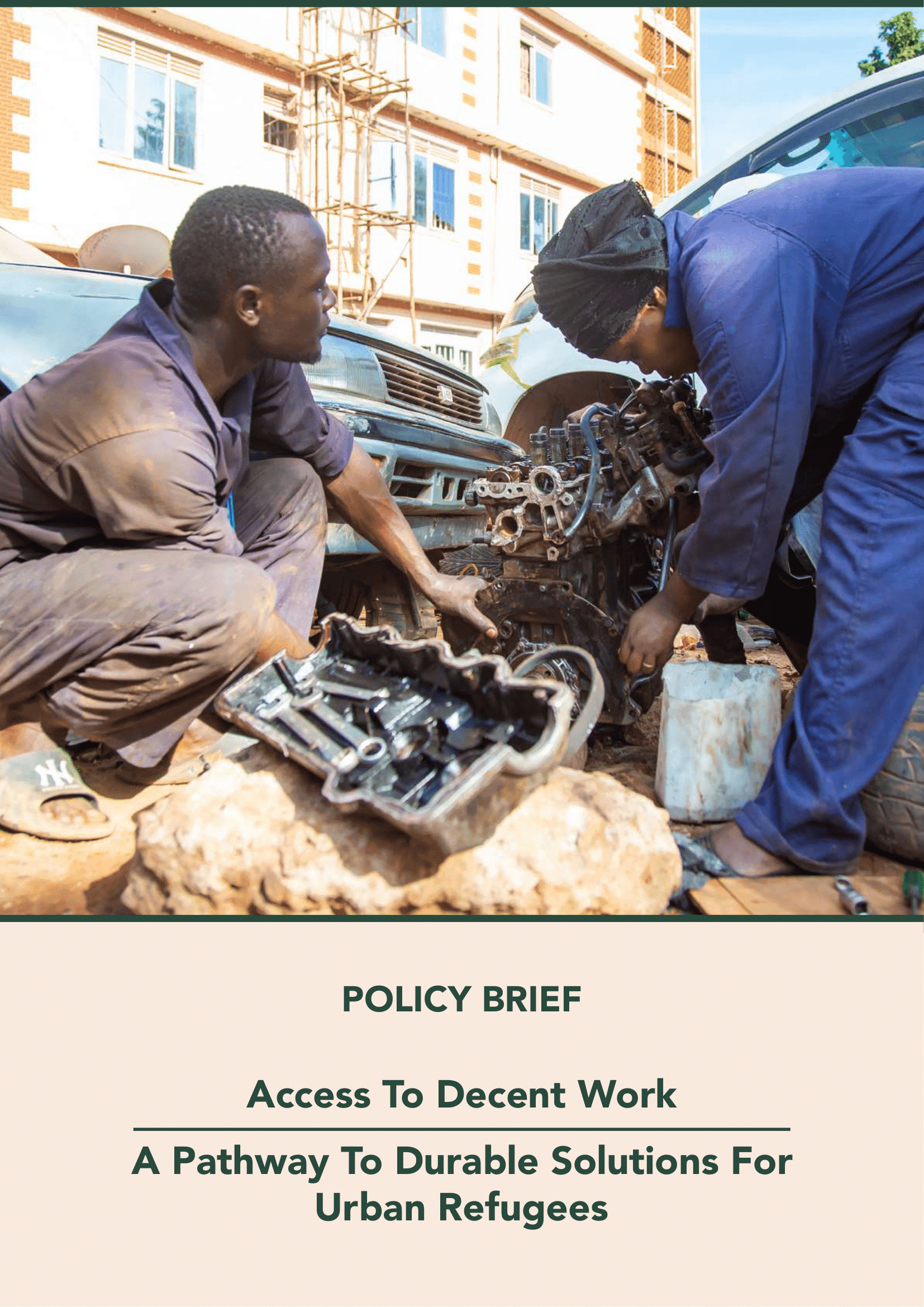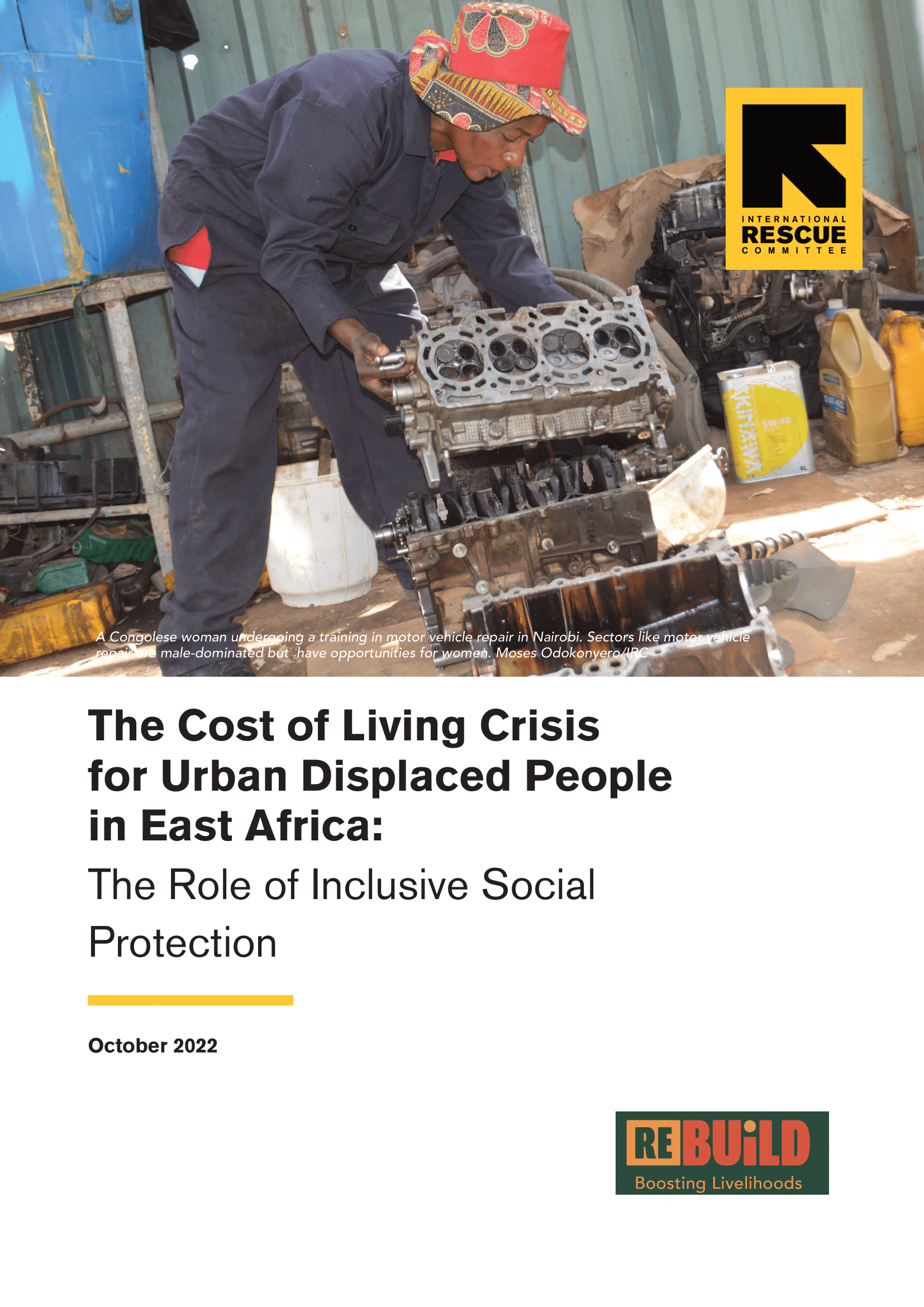Refugees' Access to Wage Employment in Kampala and Nairobi
Refugees' Access to Wage Employment in Kampala and Nairobi
This learning brief examines urban refugees’ experiences in accessing wage employment in Kampala (Uganda) and Nairobi (Kenya), drawing on insights from Refugees in East Africa: Boosting Urban Innovations for Livelihoods Development (Re:BUiLD) program over the period 2022–2023.
Learnings from Re:BUiLD’s wage employment intervention highlight that technical skilling, while necessary, is not sufficient to secure sustainable employment for refugees. Many participants who participated in the intervention gained new vocational skills and certifications but still struggled to obtain decent jobs. In mid- 2023, for example, 88% of trained refugee clients in Kampala and 46% in Nairobi were not yet engaged in any income-generating activity, underscoring the need for additional support beyond skills training. Re:BUiLD’s experience suggests that complementary measures such as addressing restrictive work policies, providing job placement support, expanding refugees’ professional networks, raising employer awareness of refugees’ rights, and strengthening soft skills like language and job-readiness are critical for converting skills into actual employment. Improving refugees’ employability must go together with advocacy and systemic changes to remove barriers in the labor market. These lessons inform the recommendations in this brief, aimed at practitioners and policymakers seeking to promote refugee self-reliance through wage employment.
